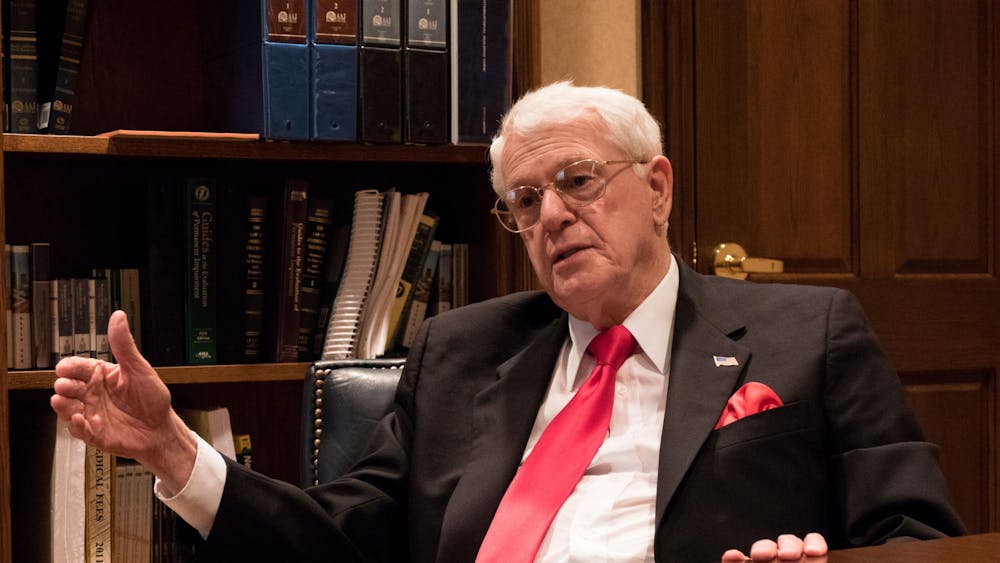INDIANAPOLIS -- Speed limits would increase on many sections of Indiana's interstates and four-lane state highways under a bill approved Monday by the legislature.\nUnder a separate measure that won final passage, delinquent taxpayers would have a grace period to pay state back taxes under a bill that passed the House Monday. The House and Senate also approved pay raises for judges and court officers.\nThe speed limit bill, approved by both chambers and sent to Gov. Mitch Daniels, would increase limits on rural sections of interstates from 65 mph to 70 mph for cars and from 60 mph to 65 mph for trucks. Limits on freeways built to interstate standards, including the U.S. bypass near South Bend, would go from 55 mph to 65 mph.\nLimits on some sections of four-lane highways divided by barriers or medians would increase from 55 mph to 60 mph.\nStudies and surveys conflict about whether higher highway speed limits lead to more traffic fatalities, but many opponents, including the Insurance Institute of Indiana, maintain that more deaths will occur.\nProponents of higher limits have said most people already drive faster than posted speeds, and the highways in question are designed for faster traffic.\n"Our roads and vehicles are much safer than they were 10 years ago," said Sen. Larry Lutz, D-Evansville. "This allows Hoosiers to safely travel at increased speeds."\nThe bill requires state police keep separate statistics on fatalities that occur on interstates and divided highways and how many involve motorists aged 16 to 19. It also would allow the Indiana Department of Transportation to keep speed limits at current levels on some highways or parts of them.\nThe House passed the tax amnesty bill 60-30 and sent it to Daniels, who made it part of his legislative agenda in hopes of capturing tens of millions of dollars in unpaid taxes. The Legislative Services Agency estimates an eight-week amnesty period could bring in as much as $103 million, based on average \ncollection rates.\nThose eligible for the program could pay delinquent taxes without interest, penalties or fees. But the bill would double penalties for those who did not take advantage of the amnesty period.\nFrom 2001 to 2004, 27 states offered 30 tax amnesty programs, according to LSA. A sample of those states showed grace periods ranging from six to 16 weeks. New York has collected nearly $583 million through such programs, and Illinois has reaped $532 million. Kentucky took in $100 million over eight weeks, whereas North Dakota got $6.9 million over 16 weeks.\nLSA said effective programs have used marketing campaigns to reach delinquent taxpayers. For example, Kentucky appropriated $1 million to advertise its program and sent applications to those with tax liabilities.\nUnder the bill, the state Department of Revenue would adopt emergency rules to set up the program for taxes due and payable for a period ending before July 1, 2004. The amnesty period could last no more than eight weeks and would end before July 1, 2006.\nHouse Minority Leader Patrick Bauer, D-South Bend, has called the legislation a "cheaters bill of rights," but it passed Monday without \ndebate.\nThe pay bill would give significant salary increases -- more than 20 percent for some judicial officials -- and provide incremental increases in the future.\nIndiana Supreme Court justices would make $133,600 instead of $115,000 -- an increase of 16 percent. The state's 301 trial court judges would make $110,500 instead of $90,000 -- a 23 percent increase. Salaries for prosecuting attorneys, deputy prosecuting attorneys and certain magistrates also would increase.\nThe legislation also would give judges a salary adjustment each fiscal year in which the General Assembly does not specifically provide a pay raise. The increase would be the same as the cost-of-living increase that state executive branch employees in similar pay \nbrackets receive.\nThe proposed salary increases will be paid for by new and increased court fees. Those fee changes were included in a bill that already passed the General Assembly.\nJudges and prosecutors have not had a raise since 1997, and a state pay commission last year recommended raising the salaries of trial court judges to $121,122.
Speed limit, tax amnesty bills, judicial salary increases approved approved
Get stories like this in your inbox
Subscribe





